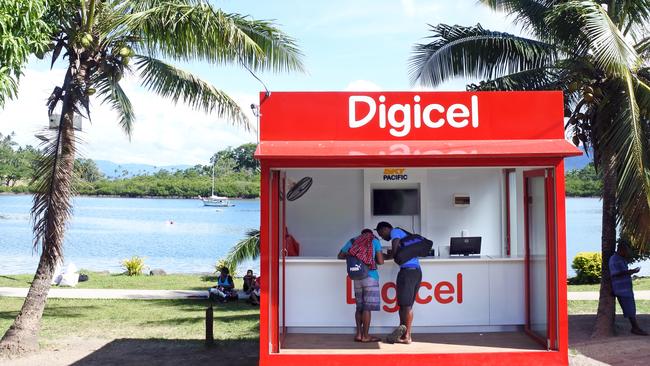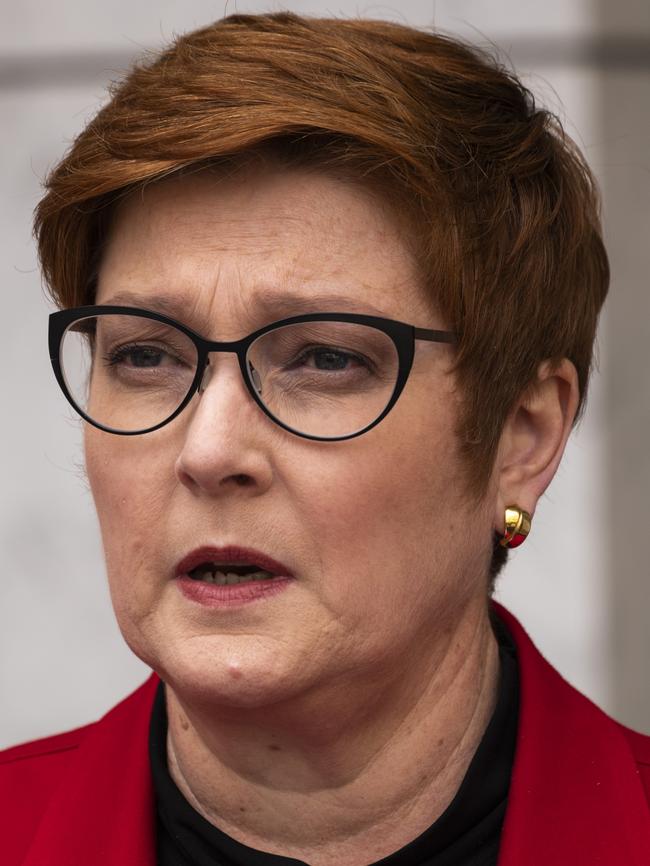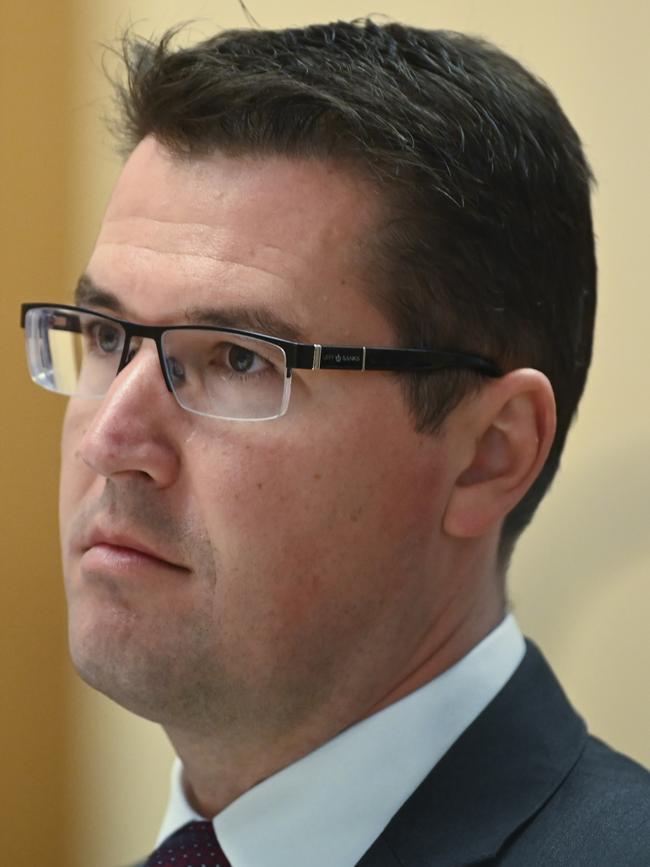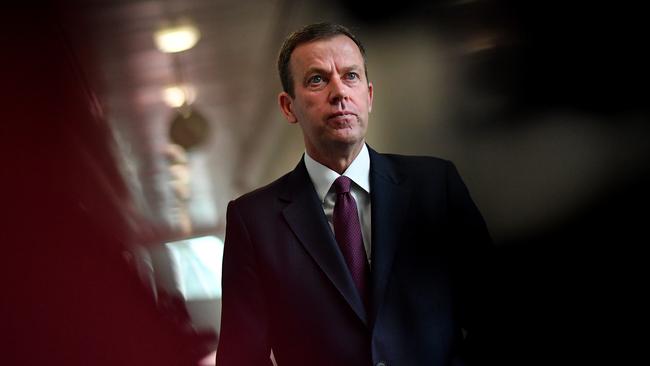Taxpayers fork out $1.8bn to keep South Pacific telco out of Chinese hands
The federal government has provided nearly $1.8bn to keep the South Pacific’s biggest mobile carrier out of Chinese hands.

The federal government has dramatically intervened to prevent China gaining control of the South Pacific’s biggest mobile phone carrier, providing nearly $1.8bn towards Telstra’s purchase of Digicel in one of the nation’s biggest investments in the region.
The massive public spend was needed to convince Telstra – which will outlay $361m but take full control of the company – to take on the risk of Digicel’s far-flung operations and deteriorating infrastructure.
The move followed rumoured interest in the company by China Mobile, but there was no firm offer on the table from the Chinese state-owned telco.
Digicel, founded by Irish billionaire Denis O’Brien, operates 3G and 4G networks across Papua New Guinea, Fiji, Samoa, Vanuatu and Tahiti, with about 2.5 million subscribers.
In a joint statement, Foreign Minister Marise Payne, Trade Minister Dan Tehan and Pacific Minister Zed Seselja said the deal was “consistent with Australia’s longstanding commitment to growing quality investment in regional infrastructure”.
“Telstra’s acquisition sends an important signal about the company’s potential and about wider business confidence in the future of the Pacific region,” the ministers said.
But senior government sources privately justified the investment on national security grounds, saying it would have been against Australia’s interests for the company to fall into Chinese hands. “No one thought China Mobile was immediately going to buy the company, but we didn’t want to leave a vacuum either,” one senior official said.


Hardware from Chinese companies Huawei and ZTE is used throughout the Digicel network, but would eventually be replaced, the source said.
The government has committed funding to the deal through Export Finance Australia, in an arrangement designed to secure taxpayers a long-term return.
The Australian Strategic Policy Institute’s Fergus Hanson said if China had gained control of the company, Beijing would have secured an intelligence and propaganda “pathway into the lives of elite and everyday Pacific islanders”.
“The law in China compels private companies to assist the state in national intelligence work, so there is an obvious pathway to misuse there,” said Mr Hanson, who heads ASPI’s International Cyber Policy Centre. “But the opportunity to shape the information ecosystem is probably even more important, given phones are such an important means of receiving news. If you own that gateway you own the message.”
Lowy Institute Pacific program director Jonathan Pryke said the government was genuinely interested in getting Australian businesses back into the Pacific, but the purchase carried serious risks. “This deal significantly ups the cost for China to get involved in telecommunications services in the Pacific, but it doesn’t buy Australia a monopoly. China could still set up their own rival service provider.”

The move is expected to ratchet up tensions with Beijing as it seeks to expand its influence in the region.
Chinese commentator Chen Hong, an Australian studies academic stripped of his Australian visa last year on national security grounds, said Canberra was overcome by “neurotic anxiety” over China’s presence in the Pacific.
“As the second-largest economy in the world, China is not interested in pointless competitions with Australia in the Pacific,” he said.
“China’s collaboration efforts with Pacific island countries are based on mutual interest and benefits, without Australia’s geopolitical obsessions.”
CEO Andy Penn said Telstra was initially approached by the Australian government to provide technical advice in relation to Digicel Pacific, and subsequently considered acquiring the business with government support. The deal is expected to be completed within six months.
The deal follows Australia’s 2018 move to elbow aside Huawei to build the Coral Sea Cable between Australia, PNG and the Solomon Islands. But the Chinese have been key providers of communications technology throughout the region, striking deals with governments to build terrestrial broadband networks.




To join the conversation, please log in. Don't have an account? Register
Join the conversation, you are commenting as Logout